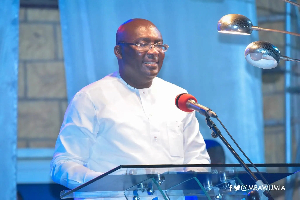THE crawling traffic from the airport down Accra’s Liberation Avenue gives you plenty of time to admire the sprouting skyscrapers ascending alongside. One is decorated with the decal of Standard Bank’s Stanbic Bank, just one of its 23 shiny branches across Ghana.
Across the road the $56m Icon House is taking shape, financed in large part by Rand Merchant Bank; Stanbic will be using it for its new head office in Ghana. A few blocks away the sprawling Accra Mall boasts a Shoprite, a Game and a Mr Price. On the way you’ll pass Woolworths, while street vendors push MTN pay-as-you go cards at you through the taxi windows.
South Africans are moving into the West African country en masse. After years of negotiations, FirstRand last month closed a deal to acquire Merchant Bank, a commercial bank that has been battling under a load of bad loans. FirstRand is spending $91m to get a 75% stake in the 22-branch bank and has managed to carve out the troublesome parts of the loan portfolio to pick up a fairly neat operation. A decade ago, Merchant was a mini Investec in the making but has lost its way in the past few years.
Stanbic, which has grown into the fifth-largest bank from 18th five years ago, is clearly focused on being number one in a few years. While growing organically it has been eyeing acquisitions, coming close to buying the 50-branch state-owned Agricultural Development Bank three years ago before politics put an end to its bid. But the bank is on the lookout for other similar opportunities.
Banking in the country is relatively straightforward. For the banks with big foreign balance sheets, like Stanbic, Barclays, Standard Chartered and increasingly Ecobank, deposits are cheap. Stanbic pays an average of 2.2% and Barclays an average of 1.3%. With that cash, government paper yields up to 20%, with a five-year bond issued in June at a yield to maturity of 23%.
The banks are also cautiously building their loan books, made up mostly of unsecured personal loans and loans to blue-chip multinational and local companies. Stanbic last year earned an average of 12% on its loans, providing a healthy net interest margin. There are no home loans, but retail asset finance is growing.
The biggest problem for the banks is that half of deposits in the Ghanaian banking system are in dollars, which are hard to earn a return off. Most banks push the dollars up to their groups’ balance sheet to earn a couple of paltry basis points. But the portion of the balance sheet in the domestic cedi currency is very profitable indeed, and the government is focusing on building the cedi economy.
South African business has been a critical part of Stanbic’s growth. Earlier this year it pulled off the first syndicated loan in Ghanaian banking with a $300m facility for MTN. The tide of retailers entering the country has provided another major new client base, both for corporate banking and a staff base for retail banking. And, of course, AngloGold Ashanti and Gold Fields dominate the mining industry alongside Canada’s Newmont.
The bank has also launched the first unsecured small business lending product in Ghana, financing the potentially massive semi-formal trading market. The product was developed with an innovative psychometric credit-scoring process using GPS technology to determine client location.
The Barclays Ghana operation is one of those on the slate to be sold into Absa, alongside the rest of Barclays’ Africa network. Seeing it in operation, you can understand how the Absa deal could make a difference for the bank.
With South African businesses increasingly moving into the economy, having a Johannesburg parent can be useful, as Stanbic is proving. Absa Capital last month listed the first exchange-traded fund in Ghana by adding Accra to the list of African capitals where the Newgold ETF can be traded.
The Ghanaian economic story is compelling, and the boom is happening in a competitive, vibrant democracy — elections in December will be a pitched battle between the incumbents and the main opposition.
Gross domestic product growth was just under 10% last year, about three percentage points of which came from oil. Ghana braced itself for a major oil windfall with the development of finds off its coast, but the prize has not been as large as was hoped.
Government spent years developing a legal framework to manage oil wealth, which has earned plaudits from experts around the world, but the flow of cash needs to be speeded up. The need for infrastructure spending, as Accra’s traffic jams prove, makes it imperative.
Business News of Monday, 10 September 2012
Source: bdlive.co.za
















